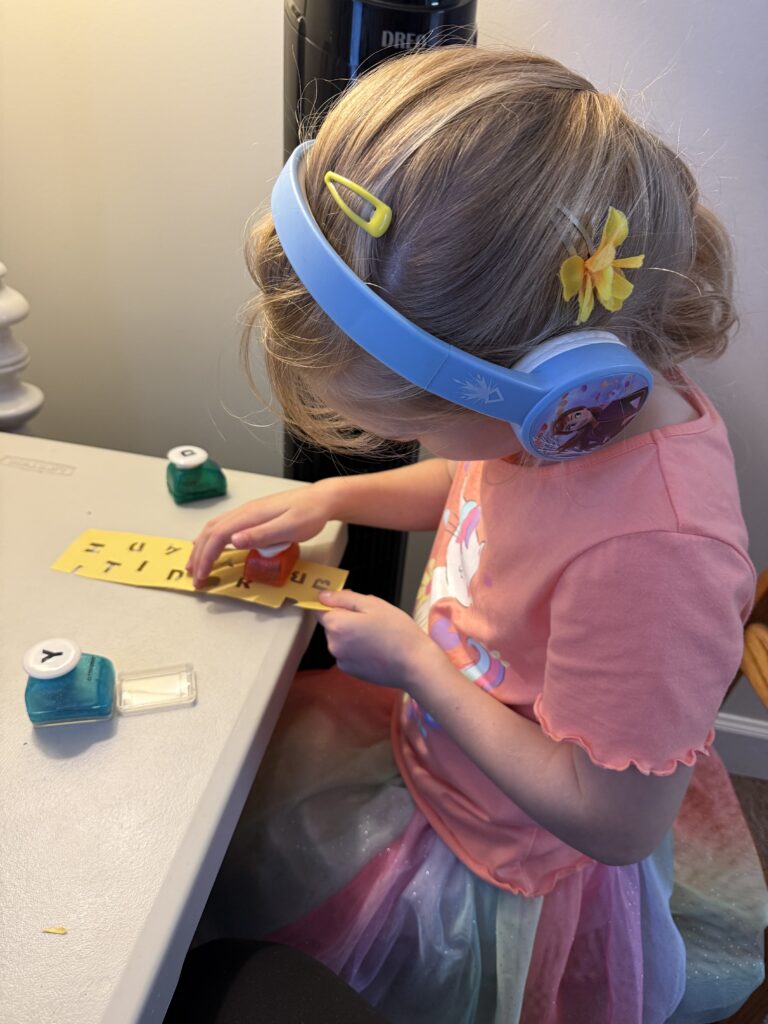What is Occupational Therapy (OT)?

Families may seek occupational therapy for a variety of reasons, as occupational therapy can address a wide range of physical, emotional, and developmental challenges.
Overall, the goal of occupational therapy is to help clients achieve their maximum potential in everyday activities, whether at home, school, work, or in the community, by addressing specific challenges and fostering independence and participation.
Occupational Therapists can address:
- Developmental Delays: Children who are not meeting developmental milestones in areas such as fine motor skills, gross motor skills, sensory processing, or self-care skills may benefit from occupational therapy to help them catch up.
- Sensory Processing Issues: Some children may have sensory processing difficulties, where they are oversensitive or undersensitive to sensory stimuli (e.g., touch, sound, taste, or smell). Occupational therapists can provide strategies to help children better process and respond to sensory information.
- Autism Spectrum Disorder (ASD): Children with autism often benefit from occupational therapy to improve their social, communication, and self-regulation skills. Occupational therapists can help develop strategies to manage sensory sensitivities and enhance daily functioning.
- Attention and Focus Issues: Children with attention deficit hyperactivity disorder (ADHD) or other attention-related challenges may receive occupational therapy to improve their ability to concentrate, stay organized, and complete tasks.
- Fine Motor Skill Delays: Occupational therapists can work with children who struggle with handwriting, cutting, buttoning, or other fine motor tasks to develop greater dexterity and coordination.
- Gross Motor Skill Delays: Children with difficulties in activities like crawling, walking, jumping, or balancing may require occupational therapy to improve their gross motor skills.
- Handwriting Difficulties: Children with illegible handwriting or difficulties forming letters may receive occupational therapy to improve their writing skills.
- Traumatic Injuries: Children recovering from accidents or injuries may need occupational therapy to regain lost skills, rebuild strength, and adapt to any physical limitations.
- Feeding and Eating Problems: Occupational therapists can assist children with difficulties related to feeding, such as sensory aversions, oral motor issues, or difficulty transitioning to solid foods.
- Coordination and Balance Problems: Some children may struggle with coordination, balance, and spatial awareness. Occupational therapy can help improve these skills, reducing the risk of accidents.
- Adaptive Equipment and Assistive Technology: Occupational therapists can recommend and assist with the use of adaptive equipment or assistive technology to enhance a child’s independence and quality of life.
- Social Skills Development: Occupational therapists can work on improving a child’s ability to engage in social interactions, make friends, and navigate social situations.
- Behavioral or Emotional Challenges: Occupational therapists can assist children in developing coping strategies, emotional regulation skills, and self-esteem through activities and techniques that promote emotional well-being.
Contact us to schedule an evaluation!
Please email or phone us and let us know how we can help support you and your family.
